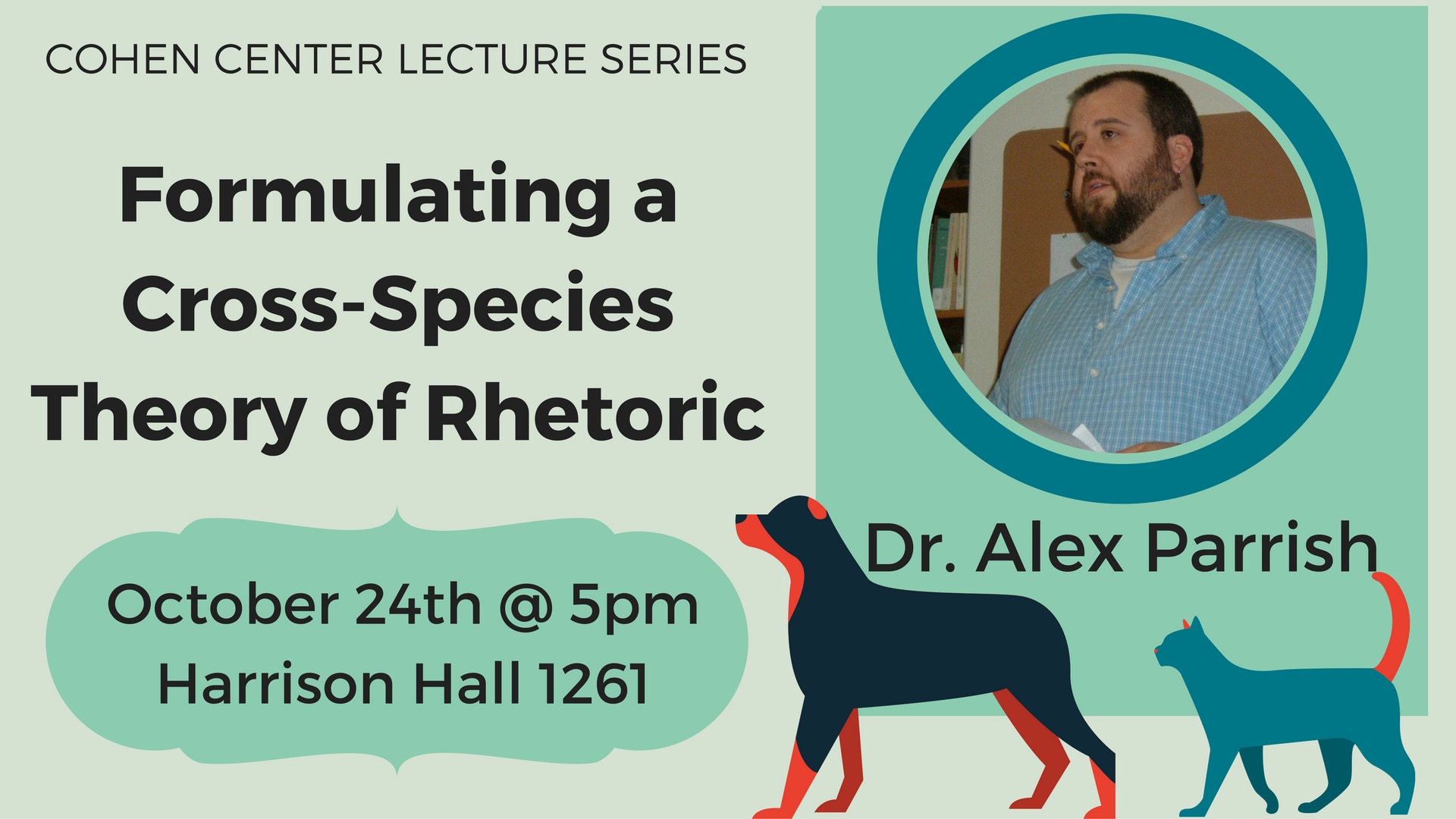Dr. Alex C. Parrish

Alex C. Parrish is Assistant Professor of Writing, Rhetoric, and Technical Communication at James Madison University. His first book, Adaptive Rhetoric: Evolution, Culture, and the Art of Persuasion, presents a biocultural paradigm for the study of rhetorical theory and practice, allowing us to understand the human art of persuasion as one among many forms of animal signaling. His work seeks to break down binaries and hierarchical thinking about what it means to be a human, an animal, a person (or, indeed, any combination thereof). His research and teaching interests include animal studies, environmental rhetoric, the rhetoric of science, semiotics, intercultural communication, histories of rhetoric, technical and professional writing, writing across the curriculum, and cross-species communication. Dr. Parrish’s second book, which is currently in preparation, will expand his treatment of animal rhetorics. This work will bring to bear new research, from a wide variety of disciplines, on animal signaling, human-animal communication, and rhetorics existing outside the audio-visual human bias.
Formulating a Cross-Species Theory of Rhetoric
Several difficulties confront those who wish to expand the scope of rhetorical theory to include nonhuman animal voices. The most pressing is that of overcoming anthropocentrism. Derrida attempted to address this problem toward the end of his career, wondering at the arrogance it takes to divide an entire kingdom of beings into two equal categories: the human and the rest of the animals. Not only does this gloss over the great abundance of species, but it also elevates humans to an artificially dominant status. Hierarchy is the spirit by which “man” is “goaded,” according to Kenneth Burke in his widely-cited “Definition of Man.” It is our desire to impose order on the natural world and our assumption that we should be on top that makes the creation – and the sometimes violent enforcement – of hierarchy appealing to human animals. But rhetoricians are aware of the dangers of hierarchy, at least when we attempt to create and enforce divisions based on differences between human bodies.
What is required to overcome the challenges of anthropocentrism and hierarchy is the recognition of animal voices and agency. In a humanistic tradition that has warmly embraced Bruno Latour’s use of a talking train to demonstrate how even artifacts can be agents in his explication of Actor Network Theory, it should be a very short step to allow truly animate beings the same courtesy. Yet the mere idea of animals having intentions, let alone the will to pursue goals that are not purely instinctual, is offensive to some. This point of view, that nonhuman animals are mere slaves to instinct, furry little automata, has long been out of favor in the life sciences. For humanists to truly embrace the animal turn, then, we must overcome our urges to rank others according to their perceived worth, based on the wholly subjective criteria of the human. This will allow us to listen to animals on their own terms and let them persuade us of their agency.

